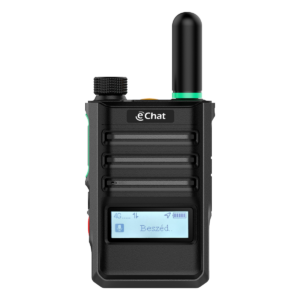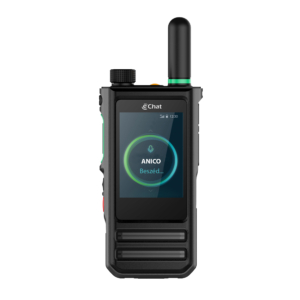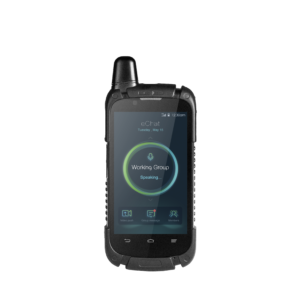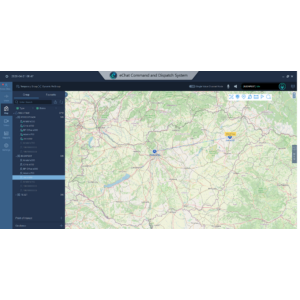In many sectors, e.g. for companies in the security guarding and event security business, there is no question that reliable, relatively long-range transceivers are the best choice for efficient work management. In which case - in larger factories, changing work locations, etc. - which transceiver system would be ideal?
Advantages and disadvantages of unlicensed transceivers
 Two-way radios operating on unlicensed open frequencies (e.g. PMR446 channels), are inexpensive and readily available, and they are usually fit for communication where only small distances need to be covered. For example in small outdoor sites where colleagues can see each other without buildings, trees with foliage and other objects blocking radio waves.
Two-way radios operating on unlicensed open frequencies (e.g. PMR446 channels), are inexpensive and readily available, and they are usually fit for communication where only small distances need to be covered. For example in small outdoor sites where colleagues can see each other without buildings, trees with foliage and other objects blocking radio waves.
In addition, if other people in the area are using equipment operating on such free-to-use frequencies, it is almost inevitable that others will be able to overhear the discussion and possibly interfere with it, thus disrupting work. When unstable communication, a crackling radio or the distribution of other radio users nearby is getting in the way of work, it is worth switching to a different technology.
 Transceivers with frequency licence
Transceivers with frequency licence
With conventional transceiver systems, greater distances can only be bridged by using higher power transceivers operating on frequencies allocated by the communications authority. A fee has to be paid to the authority to secure the frequency, and the fee also depends on whether the equipment is to be used only within a certain area or anywhere in the country.
After all, if the same frequency is allocated to someone in Pécs, someone in Miskolc and someone in Budapest, they will not interfere with each other, but they will take up less of the scarce national frequency spectrum. But if someone wants to use the equipment here one day and there the next, they will have to reserve one channel for the whole country, which means higher costs.
Repeater transceiver systems
It is even more expensive and difficult if you need to cover more than a few hundred metres, or if you need secure communications within a large factory site. This requires the installation and operation of a repeater station. Buying and installing a repeater is a costly investment, and it requires a serious systems engineering plan and a fee to the authority for two frequencies. There are then additional costs for operation and maintenance.
If there are many sites where work needs to be done, or if there is a need to use the equipment at an event site, or to install a repeater, it is always necessary to plan well in advance so that the authority can complete the licensing procedure and there is time left for reprogramming all the equipment to the frequency designated by the authority. If a repeater is to be installed on site, sufficient time should also be allowed for the setup.
The solution for changing sites, changing needs
Anico eChat's internet-based transceivers and communication system provide a cost-effective and speedy solution to all these problems.
If the location of your work changes constantly, or from one day to the next, or if you need to use the transceivers in a different place or in a different way than usual to secure an event, eChat internet-based transceivers are ready for the new deployment. The eChat devices do not require a frequency licensing procedure and can operate freely anywhere in Hungary and EU Member States, as long as there is mobile internet or WiFi coverage in the area. Because of their virtually unlimited range, there is no need to install a repeater station, and in most cases there is no need to reprogram the devices. Existing and operational transceivers can be freely reallocated between sites at any time and channels (talk groups) can be adapted to the task at hand via an online interface.
The Anico eChat transceiver system also offers a number of additional features that can be a great help when managing a large event or working in a changing location. For example Dispatching Software that can be run on a computer to track the geographic movement of radios, or to create occasional teams of colleagues at the same location or working on a particular task. As the system is closed, the communication cannot be intercepted by outsiders and the number of channels (groups) is virtually unlimited. The dispatching software can record conversations in audio files and log the route taken and the communication carried out over radio.











